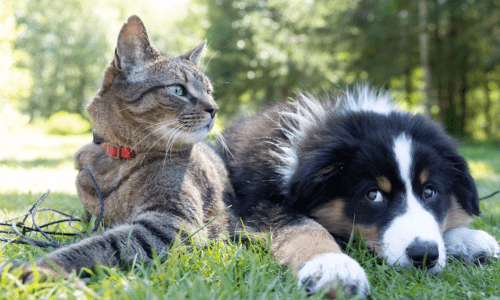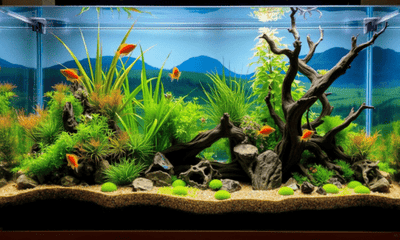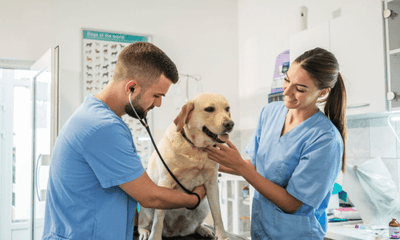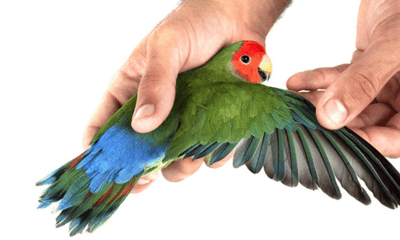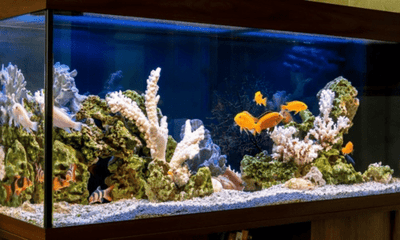When it comes to your pet’s health, what’s left behind in the litter tray or backyard can tell you more than you might think. Your pet’s poop isn’t just waste, it’s a valuable insight into their diet, digestion, hydration, stress levels, and overall wellbeing. In fact, many early signs of illness first appear in a change to stool quality. Whether you’re a dog owner picking up after your pup or a cat parent cleaning the litter box, it’s worth paying attention to what you’re seeing.
In this blog, we’ll explain why your pet’s poop matters, what’s considered normal, what warning signs to watch for, and how to support a healthy digestive system.
What Does Normal Pet Poop Look Like?
While every pet is different, healthy stools generally share some common traits:
Dogs: Normal dog poop should be well-formed, firm but not dry, and easy to pick up without crumbling or smearing. It should be chocolate-brown in colour, with no signs of mucus, blood, or worms.
Cats: A healthy cat's stool should be firm, log-shaped, and medium to dark brown. It should have a mild odour and be easy to scoop from the litter tray without sticking.
Consistency is key. Occasional changes are normal, especially if your pet has eaten something new, but ongoing issues or sudden shifts could indicate a problem.
Why Your Pet’s Poop Is a Window Into Their Health
Your pet’s digestive system plays a major role in their overall health. Monitoring their bowel movements can help you catch early signs of:
-
Dietary intolerance or food allergies
-
Parasite infestations (worms, Giardia, etc.)
-
Digestive upset or infections
-
Inflammatory bowel disease (IBD)
-
Dehydration or poor fibre intake
-
Stress or anxiety
If you notice persistent changes in stool, it’s always a good idea to consult your vet, especially if the change is accompanied by other symptoms like lethargy, weight loss, vomiting, or a poor appetite.
What Abnormal Poop Looks Like
There are several signs to watch for that could signal something is off:
-
Diarrhoea: Loose, watery, or unformed stools may be a sign of stress, parasites, infection, or dietary sensitivities
-
Constipation: Hard, dry stools or straining during defecation could indicate dehydration, low fibre, or an underlying condition
-
Mucus or blood: Often a red flag for inflammation, infection, or injury to the digestive tract
-
Unusual colour: Very dark, pale, yellow, or green stools can all suggest specific issues, for example, black may indicate digested blood, while pale grey could signal a liver problem
-
Presence of worms: Visible segments, strings, or moving worms in the stool are signs your pet may need a deworming treatment
What Can Affect Your Pet’s Stool Quality?
Several factors can influence the appearance, smell, and consistency of your pet’s stool:
-
Diet: Poor-quality or inappropriate food is one of the most common causes of digestive upset. Too much fat, too little fibre, or sudden diet changes can all affect bowel movements.
-
Hydration: Not drinking enough water can lead to constipation or dry, crumbly stool.
-
Stress: Changes in routine, travel, new environments, or separation anxiety can all trigger digestive upset, especially in dogs.
-
Parasites: Intestinal worms are a major cause of abnormal stool in pets and often go undetected without regular checks.
-
Underlying illness: Conditions such as pancreatitis, liver disease, and IBD often present first through changes in stool.
How to Support Healthy Digestion in Pets
To help keep your pet’s digestive system healthy, it’s important to maintain a consistent routine and provide balanced nutrition, parasite control, and proper hydration. Here are a few tips:
-
Feed a high-quality, species-appropriate diet rich in fibre and easily digestible ingredients
-
Avoid giving human food scraps, which can be too rich or irritating
-
Provide constant access to clean, fresh water
-
Introduce dietary changes gradually to avoid stomach upset
-
Use a regular deworming schedule, as advised by your vet
-
Offer gut health supplements or probiotics where appropriate
-
Maintain a calm, low-stress home environment
If you're ever unsure whether your pet’s poop is normal, take a photo and consult your vet. In some cases, they may recommend a stool test to check for parasites or infections.
Cleaning Up After Your Pet: Do It Right
Monitoring your pet’s poop means cleaning it up consistently, both for hygiene and health reasons. Scooping your cat’s litter tray daily and picking up after your dog every walk gives you a chance to keep an eye on changes. Make clean-up easier with:
-
Sturdy, biodegradable dog waste bags
-
Odour-control litter options for cats
-
Easy-clean scoops and litter box liners
-
Pet-safe disinfectants for surfaces
Your pet’s poop might not be the most glamorous topic, but it’s one of the easiest and most important ways to keep track of their health. By understanding what’s normal and spotting red flags early, you can support your pet’s digestion, prevent bigger health issues, and ensure they stay happy, active, and comfortable. Here at Woonona Petfoods, we stock a wide range of litter, poop bags, scoops, and gut health supplements to help keep your pet’s digestive system happy and your home clean.


